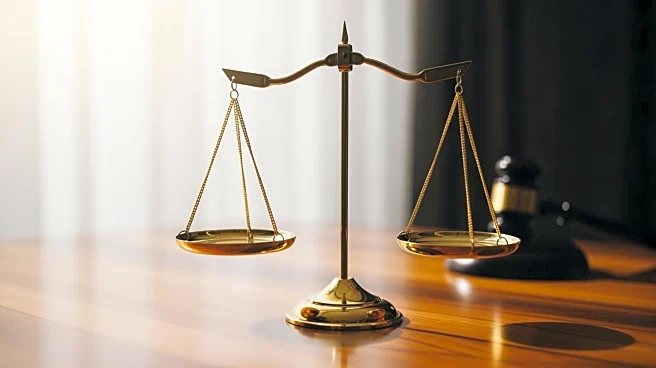What's Happening?
Former French President Nicolas Sarkozy has been released from prison under judicial supervision after serving less than three weeks of a five-year sentence for criminal conspiracy related to campaign
financing. Sarkozy was convicted for attempting to finance his 2007 election campaign with funds from Libya, making him the first former French head of state in modern times to be imprisoned. The Paris Court of Appeal granted his release, imposing strict conditions including a ban on leaving French territory and contacting co-defendants or witnesses. Sarkozy, who denies wrongdoing, argued during a videoconference from prison that he has always complied with justice requirements. His appeal trial is expected to take place in the spring.
Why It's Important?
Sarkozy's release pending appeal highlights ongoing debates in France regarding judicial independence and fairness, especially concerning high-profile political figures. The case has drawn significant attention due to its implications for political accountability and the integrity of campaign financing. Sarkozy's conviction and subsequent release could influence public perception of the French judicial system and its handling of political corruption cases. The restrictions placed on Sarkozy, including the ban on contacting Justice Minister Gérald Darmanin, underscore the sensitivity of the case and its potential impact on political relationships within France.
What's Next?
The next steps involve preparing for Sarkozy's appeal trial, which could potentially overturn or uphold his conviction. The outcome of the appeal will be closely watched, as it may set a precedent for how similar cases are handled in the future. Additionally, Sarkozy faces separate legal proceedings, including a ruling on illegal financing of his 2012 reelection bid and an investigation into alleged witness tampering. These ongoing legal challenges could further affect his political legacy and influence in France.









